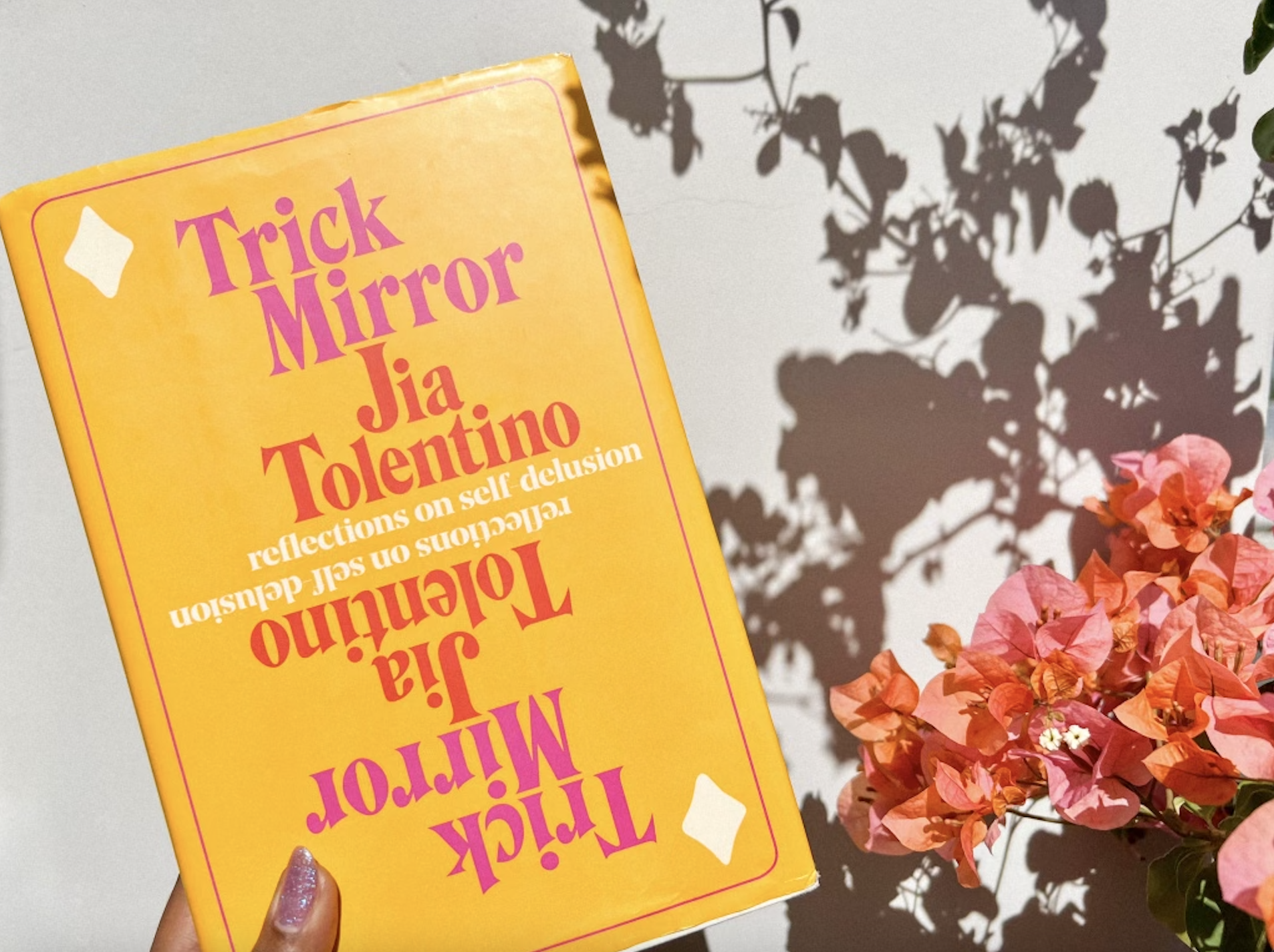Trying to make sense of… everything? We’ve got a book for that.
When I think about awareness, I can’t help but immediately jump to “self-awareness.” And no one does self-awareness better or more gracefully than Jia Tolentino. Not only is she a staff writer at The New Yorker, Tolentino’s 2019 book of essays Trick Mirror all but solidified her as the Joan Didion of my generation. From an introspective look at her own time as a teen reality TV contestant on the show Girls vs. Boys: Puerto Rico to a critical analysis of how she found herself committed to a megachurch, Tolentino mines her personal experiences for deeply nuanced insight about culture today.
My favorite essays include “The I in the Internet,” “Always Be Optimizing” and “The Cult of the Difficult Woman.”
In “The I in the Internet,” Tolentino takes us through a quick overview of the macroevolution of internet culture as it’s moved from web 1.0 (domain-based standalone websites) to 2.0 (platforms as portals to interact and discover) and beyond. Tolentino weaves together the words of tech CEOs and 1950s sociologists to paint a comprehensive picture of the role of the internet. Through the lens of popular culture, news, and politics, she showcases the ways the internet is impacting us culturally, politically, and therefore, historically.
“Always Be Optimizing” plays to one of Tolentino’s greatest strengths as a writer: the ability to critique our modern society without scorning the individual simply trying to exist within it. One of the reasons she’s successful in this is because she always makes herself the subject of examination, her criticism haloing those of us who can relate. In “Always Be Optimizing” she questions not just hustle culture and the male gaze but the pleasure she takes in succeeding in both: “I like trying to look good, but it’s hard to say how much you can genuinely, independently like what amounts to a mandate.”
Finally, in “The Cult of the Difficult Woman” she layers a fresh perspective onto the records of women who were unfairly categorized as villains. From Eve (yes from The Bible) to Elena Ferrante, Kellyanne Conway to Kim Kardashian, and Ilana Glazer to Ivanka Trump this chapter dissects how famous women are subject to a particular type of gendered scrutiny their male counterparts simply are not.
Awareness isn’t always about how much you know, but about how deeply you understand what you’ve experienced. As I’ve been looking to make sense of the why behind current events, Jia Tolentino’s voice has been and continues to be one I turn to feed my awareness.

